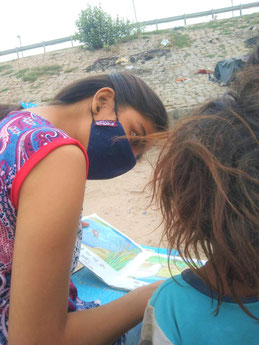Early Reading Program
Impact of Reading to children at a very young age

Reading to a toddler offers a multitude of advantages that extend far beyond the joy of storytelling. First and foremost, it fosters early language development and enhances vocabulary skills. Through exposure to different words, sentence structures, and ideas, toddlers expand their language repertoire and improve communication abilities. Additionally, reading together creates a special bonding experience, nurturing emotional connections between the child and the reader. It also stimulates cognitive development by encouraging curiosity, imagination, and critical thinking skills. As toddlers engage with the illustrations, they learn to make connections, predict outcomes, and develop a sense of narrative comprehension. Moreover, being read to instills a love for books and learning, setting the foundation for a lifelong habit of reading. Ultimately, reading to a toddler is a gateway to intellectual growth, creativity, and cherished moments of togetherness.
Current State and Goal

Street children never read books. Never. Until they enter school - and in most schools, storybook reading isn't even a part of the teaching - they do not get in contact with written words. Thus, when they are old enough to visit kindergarten, the whole world of literacy is completely new and, often, daunting to them. We wanted to change that, at least for our small street community.
We want that each child in the slum we're working at has the opportunity to discover the joy of interacting with story books. Since most parents cannot read, providing books cannot be the answer. Someone needs to meet them on the street and read to them.
What we do and how it impacts the street children

Five students of our "Future Education" program are our current volunteers reading to toddler street children three times a week. This is part of our scholarship holders' community service that they sign up to when entering our program. Each of the adolescents and young adults has to volunteer 2 hours a week in order to give back to the community.
Our volunteer students visit one particular toddler at a time and sit with them in front of their tent. Most of the time, the older siblings or other kids want to listen in, and that's okay. They are allowed to sit in and listen, although the volunteer mainly focuses on interacting with the toddler. After the story reading or in between, they ask the child to find certain objects, talk to them and let them manipulate the book.
Currently, this is our program that has the highest impact for the lowest investment of money - since the reading program is solely based on volunteers and only requires story books, there is almost no financial commitment. However, the intensified closeness to the community and the excitement of the children when being read to show us how greatly appreciated this program is. Once we start our Damini Kindergarten in June, we except kids to be ready much more to want to attend "proper" schooling.


